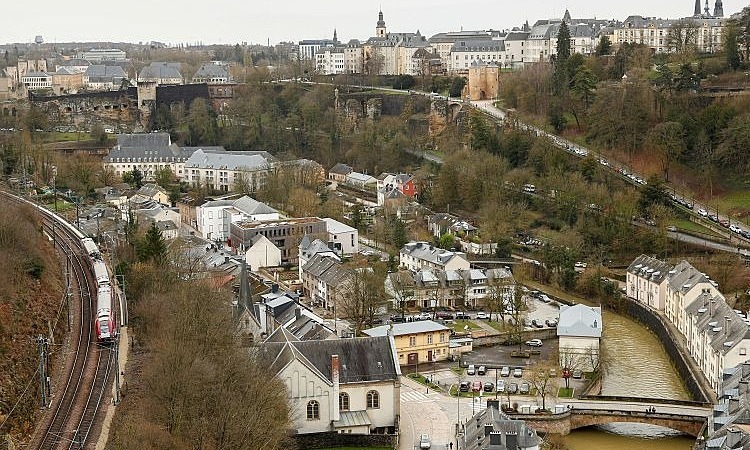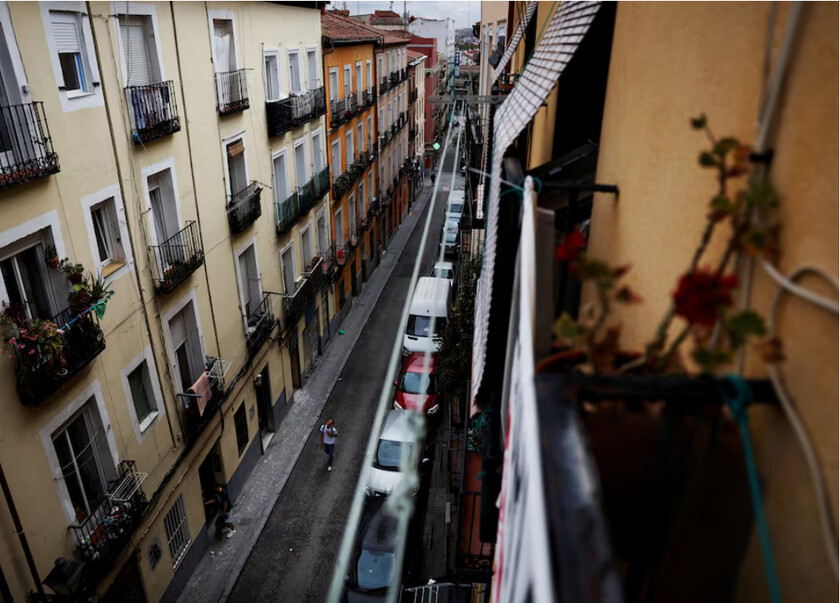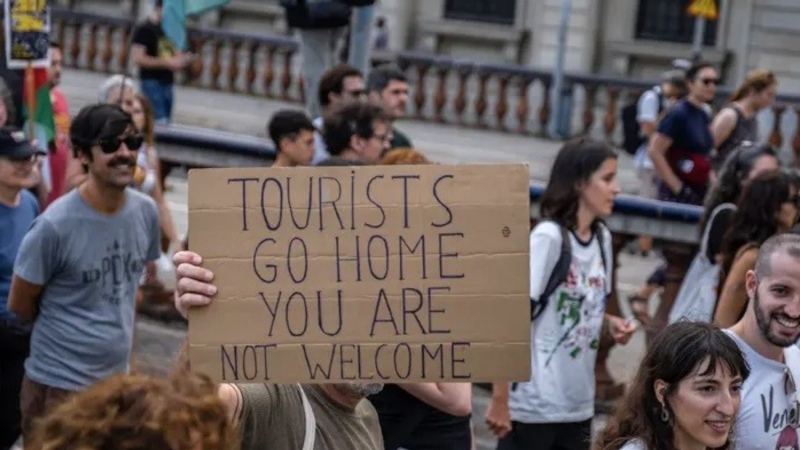According to the European Commission (EC), homelessness in Europe has increased significantly over the past 10 years. DW likens the housing crisis in Europe's leading economy to a situation where finding affordable housing is like winning the lottery. However, in Spain, the severity of this problem is masked by the trend of young people living with their parents for longer periods.
Just over 60% of young people aged 18-34 in Spain live in their own homes. The proportion of young Spaniards living with their parents increased faster than any other major European economy between 2008 and 2022. The report adds that social housing in Spain accounts for only 1.5% of total housing, compared to the European average of 9%.

The housing crisis is profoundly impacting the lives of people in Europe, especially in urban areas.
Low-income individuals, especially young people and families with many children, face difficulties accessing housing due to high housing prices and limited supply of social housing.
According to official statistics, the homelessness rate in Spain has increased by 24% since 2012, reaching 28,000 people. According to a report by the Bank of Spain, approximately 45% of those living in rented accommodation are at risk of falling into poverty or being left behind in society, the highest rate in Europe. The tourism boom has led to homelessness for many Spaniards, as landlords reclaim properties for renovations to accommodate short-term tourist rentals. Furthermore, the rising cost of living has made home ownership increasingly unattainable for a significant portion of the population.
In Barcelona, a city facing tourism overcrowding, rents, consumer goods, and essential items are soaring. Due to the influx of tourists, rents in Barcelona have increased by 68%, and home prices by 38% over the past 10 years.
Locals are struggling to find affordable accommodation around tourist hotspots, and unmanageable costs are making things difficult even for landlords. According to El Pais, rents in Barcelona are more expensive than ever. In the third quarter of last year, an apartment in the city cost an average of around 1,171 euros per month.

The rising cost of living has also contributed to making the dream of home ownership increasingly unattainable for a segment of the population.
Recently, thousands of people protested in downtown Barcelona against the influx of tourists. To address the situation in the short term, many charities in Spain have sought to work with real estate companies to help those in need rent homes at prices approximately 30% lower than market rates. However, this is not a long-term solution.
The Spanish government's current plan for social housing is to add 184,000 units over the next three years. In May, Prime Minister Pedro Sanchez said he wanted the social housing stock to reach the European average by the end of his term in 2027. But the Bank of Spain estimates that an additional 1.5 million homes are needed to achieve that goal.
According to official figures, the rate of housing construction in Spain, at 90,000 units per year, is slower than the growth in demand and significantly lower than the 650,000 units built in 2008. Previous analysis by Eurostat, the European Union's statistical agency, showed that 44.8% of Spaniards who rent are at risk of falling into poverty because property prices are higher than their incomes.
Addressing the housing crisis is an urgent task for the Spanish government. Increased investment in social housing and practical solutions to raise the rate of social housing are key to ensuring that all citizens have access to safe and affordable housing.

 VI
VI EN
EN



































